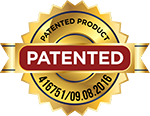Our homes, workplaces, and outdoor areas are made more beautiful and lively by plants. However they need some care to be healthy, and the appropriate fertilizer is essential. This article explores the world of plant organic fertilizer, outlining its advantages and providing application advice. We’ll also talk about the fun concept of giving planters that include a hint of organic goodness as gifts.
The Power of Plant Organic Fertilizer
Unlike synthetic fertilizers, plant organic fertilizer provides your plants with nutrients that are naturally derived. Constructed from decomposed organic materials like manure, compost, and plant leftovers, it provides a slow-release feeding method that is good for the environment and your plants.
The following are the main benefits of applying organic fertilizer to plants:
Sustained Release: Organic fertilizers release nutrients gradually over time, in contrast to synthetic fertilizers that release nutrients in a sudden burst. In addition to ensuring that your plants have a balanced diet throughout their growth cycle, this helps minimize nutrient burn.
Better Soil Health: Using organic fertilizers not only nourishes your plants but also the helpful microorganisms that call the soil home. These microorganisms are essential for enhancing the drainage, nutrient availability, and soil structure of your plants and fostering a healthier environment overall.
Diminished Environmental Impact: By leaking into streams and damaging beneficial insects, synthetic fertilizers can contaminate the ecosystem. Conversely, organic fertilizers support sustainable gardening practices and are good for the environment.
Improved Plant Health: Plants with stronger cell walls are more resilient to pests and diseases, and this is made possible by the use of organic fertilizers. Additionally, robust plants can withstand more environmental stress.
Getting the Right Organic Fertilizer for Your Plants
There are many different possibilities for plant organic fertilizer, and each has a different nutrient profile. Here’s a summary of some well-liked options:
Compost: A widely accessible and adaptable solution, compost enhances soil structure and offers a balance of nutrients.
Worm Castings: A great option for container plants and seedlings, worm castings are full of nutrients and helpful bacteria that are easily absorbed.
Manure: Composting manure before using it is necessary to prevent it from burning plants. Manure is a powerful source of potassium, phosphate, and nitrogen. Depending on what you need, pick between aged chicken manure, old cow manure, or aged horse manure.
Fish Emulsion: This nitrogen-rich liquid fertilizer is excellent for accelerating the growth of leafy greens in particular.
Seaweed Extract: Packed with growth hormones and minerals, seaweed extract can be sprayed on leaves to help plants cope with stress and stay healthier.
Never forget to do your homework before selecting a fertilizer. Find out what your plants specifically require.

The Art of Gifting with Planters and Organic Fertilizer
Gifts of plants are perfect for every occasion. So why not add a little organic goodness to your giving to make it better?
Here are some ideas:
Build Your DIY Succulent Kit: Add a layer of worm castings and a well-draining soil mixture to a beautiful planter. Add a little packet of organic succulent fertilizer together with a variety of vibrant succulents.
Herb Garden Starter Kit: Pack a couple of packets of heritage herb seeds and fill an attractive container with a drainage hole with organic potting mix. Finally, add a bottle of liquid herb fertilizer that has been previously diluted.
Indoor Plant Package: Select a lovely, low-maintenance houseplant, such as a peace lily or a snake plant. Plant it in a chic container and fill it with a tiny bag of organic fertilizer that releases slowly and organic potting soil.
These planter presents encourage a sustainable gardening method in addition to being thoughtful.
Beyond the Basics: Liquid Fertilizer & Fertilizer Liquid
The term “fertilizer liquid,” or “liquid fertilizer,” refers to water-soluble solutions essential for plant growth. These might come from organic sources like seaweed extract or fish emulsion, or they can be synthetic.
The following are some important points to remember about liquid fertilizers:
Convenience: Liquid fertilizers are simply applied and absorbed by plants.
Targeted Feeding: Liquid fertilizers are available to fulfill certain needs, such as promoting root development or flowering.
Controlled Application: Using liquid fertilizer allows for precise application, which lowers the chance of overfertilizing.
Important Reminder: Whether synthetic or organic liquid fertilizers, always adhere to the manufacturer’s recommendations regarding treatment frequency and dilution.
FAQ’s (Frequently Asked Questions)
Q. What is the best organic fertilizer for plants?
A. Organic products like cow dung manure, garden compost, seaweed, fish emulsions, vermicompost, perlite, etc., all fall under the banner of organic means of fertilizing greenery. Using these naturally found substances makes the plants more joyous and helps them live a healthy and long-lasting life.
Q. What is organic fertilizer plant?
A. An organic fertilizer is a fertilizer that is derived from organic sources, including organic compost, cattle manures, poultry droppings, and domestic sewage.
Q. What are the 5 names of organic fertilizer?
A. Processed organic fertilizers include compost, liquid plant manures, humic acid, grain meal, amino acids, and seaweed extracts. Other examples are natural enzyme-digested proteins. Decomposing crop residue (green manure) from prior years is another source of fertility.
Q. How to make organic fertilizer for plants?
A. Quick how-to: Add banana peels, coffee grounds, vegetable scraps, tea bags, and any other organic waste to a large, glass jar using a 1:10 ratio of compost to water. Mix in fresh or dried seaweed as an added nutritional bonus. Seal and shake the mixture once a day to agitate the tea.
Q. What is the best homemade fertilizer?
A. “A compost pile would be the natural fertilizer I would strongly recommend,” says Kemper. To make compost, take all your scraps (like eggshells, fruit peels, and coffee grounds) and put them into a pile with leaves, sticks, and other organic debris (Adhunik Amrit).
Q. Which fertilizer makes plants grow faster?
A. High-nitrogen fertilizers are known for causing huge growth in plants, which is why many types are rich in nitrogen or include it as the main component. Fertilizers high in nitrogen will also restore bright green hues to your foliage.
Q. What is pure organic fertilizer?
A. A combination of pure fermented organic sources such as bone meal, fish meal, soya bean, and tapioca helps to improve soil structure and reduce soil compaction.
Q. When to apply organic fertilizer?
A. The best time to apply [low carbon-to-nitrogen ratio (C:N)] manures is about one or two weeks before planting the crop. This lead time allows for some decomposition of the manure and lessens the possibilities of plant injuries that often occur with freshly applied manures.
Q. What are the main organic fertilizers?
A. The four main groups of biologically important organic compounds are carbohydrates, lipids, proteins and nucleic acids.
Q. What is easy grow organic fertilizer?
A. A water soluble fertilizer with chelated micro-elements and bio-stimulants for foliar feeding and fertigation. It is recommended for use during plant growth periods that require relatively high Nitrogen levels e.g. during periods of vegetative growth.
Conclusion
Plant organic fertilizer is an effective and natural way to support healthy soil and provide nutrients to your plants. No matter how experienced you are, using organic fertilizers in your gardening can make a big difference. Regarding donating, consider the satisfaction of obtaining a beautiful plant and the guarantee of organic growth. With some planning ahead of time and helpful advice, you may build a flourishing green space and share the delights of gardening with others.





 Locate Us
Locate Us